The Myers-Briggs Personality Types in Demon Slayer
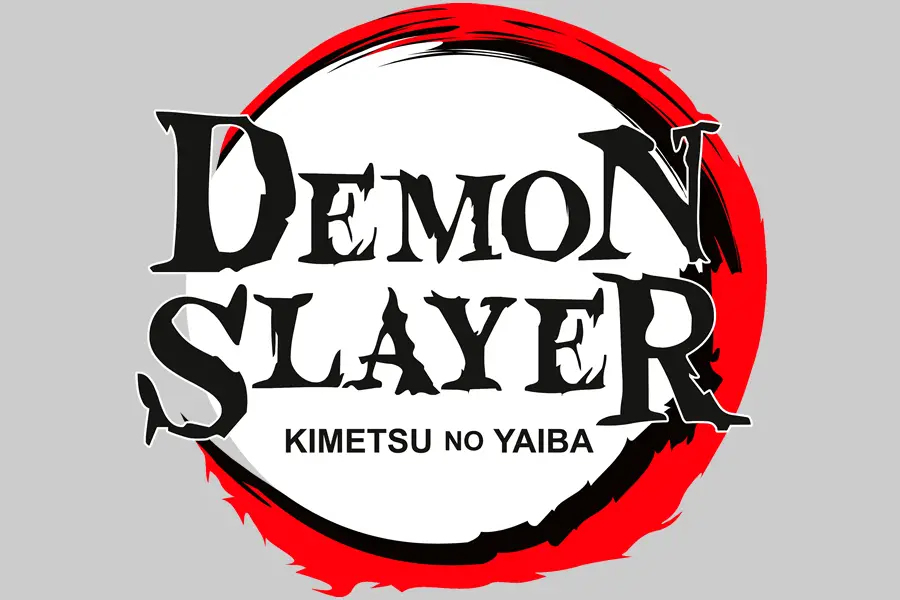
Demon Slayer has a variety of characters, but only Tanjiro, as the main protagonist, gets enough character development to justify discussing his Myers-Briggs (MBTI) personality type in-depth. However, that doesn’t mean that no other characters in Demon Slayer have identifiable personality types. In fact, there are quite a few that we can make reasonable guesses to what their personality types are. Therefore, we’re writing this group article to briefly cover some of the more significant characters. For the record, while we have written an individual analysis of Tanjiro Kamado, we will be covering him very briefly in this article as well, for those who’d rather read the cliff notes.
The Myers-Briggs Personality Types in Demon Slayer
Tanjiro Kamado – ENFJ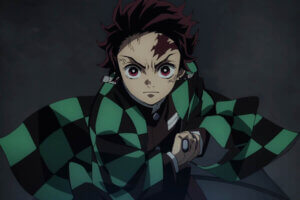
“But when it comes to those who felt despair and regret from the actions they took as a demon, I will never disrespect them. Because at one time or another, they were human, no different from me. So please don’t step on his remains!”
Tanjiro is not only considerate of others, but very polite and formal in the way that he talks. He has a deep respect for social etiquette. He scolds others like Inosuke and Zenitsu when they are being rude and violating those protocols. Tanjiro does not get stuck on past regrets and sorrows, even though the tragic death of his family makes him deeply sad. (This is even the case when plunged into a dream world, where they’re still alive.) Instead, he focuses solely on the fact that he still has Nezuko, and works toward the impossible mission of turning her back into a human.
Read More: Demon Slayer: Tanjiro Kamado (ENFJ)
Zenitsu Agatsuma – INFP
“Even so, I’ve been deceived by others many times. That’s because I’ve always stubbornly believed in whomever ever I wanted.”
Zenitsu is idealistic, believing in whomever he wants to, sometimes in spite of evidence to the contrary. He initially places his full, blind faith in Tanjiro, someone he barely knew, believing that Tanjiro must have a good reason for travelling with a demon. Many people identify Zenitsu as an ISFP. However, he often fails to live in the moment. Instead, he’s frequently shown considering unrealistic conclusions, such as speculating that him and Nezuko would get married after hearing her say “Good Morning” to him for the first time.
Inosuke Hashibira – ESFP
“So? What do I care? Nothing can take away from this moment, and the pleasure I feel.”
Inosuke lives for the present moment and does not think much past his current situation. During his debut into the show, Inosuke is running around a demon’s house, killing every demon he comes across. We initially considered ESTP for him, given that he generally comes across abrasive, like a thinker, and doesn’t communicate any strong values. However, Inosuke displays more of a desire to control situations than he does to make sense of things. In addition, he follows his every impulse, and makes no effort to charm others. Inosuke is completely confident in himself and frequently declares that the others are his minions, while he is the king of the mountain. He primarily relies on instinct when fighting and has honed his body to be able to react to his senses on an almost subconscious level, which is put on display in numerous fights throughout the series.
Muzan Kibutsuji – ISTJ
“Have I ever told you lot how much I detest change? Changes in circumstance, the changes of flesh, changes in one’s emotions. Most changes cause only weakness and inferiority, and I am not weak. What I’m interested in is permanence, to forever remain in perfect condition, immune to the disease of change.”
Reserved, calculated, patient, and cautious are probably the four most defining traits of Muzan. These traits are either demonstrated or outright stated to be true about him throughout the show. One of his most prominent statements is how much he hates change. Muzan is extremely cautious, to the point that he puts a curse on all demons so that they can’t so much as even utter his name or talk about him. Muzan is reluctant to have many subordinates, but ultimately deems it necessary because of the difficulties in accomplishing his goal without them. While many identify him as an EXTJ, he makes more sense as an IXTJ, not only because of his excessive caution and hesitancy to work with others, but because he’s too patient with his upper ranked demons. For instance, later in the series, his patience finally runs thin, and he berates them for failing to make any progress towards two major goals in spite of having centuries to do so.
Muichiro Tokito – INTP
“There’s no reason to stop and fight it now. If the entire village is under attack, then the village chief comes first. Those with greater skills and talents are my top priority to protect. My objective is to annihilate that upper-ranked demon, and protect the village at all cost. Saving and inexperienced budding swordsmith won’t amount to anything.”
Muichiro Tokito, or the Mist Hashira, prioritizes reasoning and logic. He is most often breaking down situations into their logical components, devoid of emotional implications. This causes him and Tanjiro to clash when they first meet. It isn’t until later, when Tanjiro awakens some of his lost memories, that Tokito starts taking emotional data into account. When Tanjiro acts in ways that Tokito does not understand, Tokito asks a lot of questions and speculates as to what his reasoning is. This inquisitive nature is fairly common for him. He also excels at logically analyzing past situations, which is demonstrated when he explains what the manifestation of a mark was like and what the prerequisites for obtaining one might be.
Giyu Tomioka – ISTJ
“The weak have no rights. They don’t get to make choices. All they can do is be relentlessly crushed by the strong.”
Tomioka, or the Water Hashira, is one of the more quiet and reserved characters in the show. He mostly keeps to himself, only involving himself with other Hashira when it’s absolutely necessary. It is later revealed that Tomioka struggles with imposter syndrome, not even considering himself one of the Hashira in spite of bearing the title and being extremely skilled. He is stuck on the period of time in his past, when he barely survived the entrance exam. He spends most of the entrance exam either getting saved by someone else, or passed out, ultimately believed that he passed it on a technicality. Due to this view point, Tomioka tries to keep out of decisions and only do what is required of him. Upon first meeting Tanjiro, Tomioka berates him for being weak, for groveling, and for making himself vulnerable. He internally empathizes with Tanjiro, but tries to incite Tanjiro to rage so he’ll have the strength to avenge his family.
Kagaya Ubuyashiki – INFJ
“I know what eternity is. Eternity is human feeling. Only human feelings last forever and are undying.”
Kagaya Ubuyashiki garners the affection and respect of all those who serve under him. In many ways, he’s the INFJ stereotype. He refuses to accept personal protection, willing to put himself and his family at risk for the greater good. In addition, he’s a long term planner and thinker. He’s able to predict Muzan’s actions, and lure him into the ultimate trap. The two initially have a calm, philosophical discussion, before Kagaya Ubuyashiki finally decides to blow his home up, with his family and Muzan in it.
Sanemi Shinazugawa – ENTJ
“Not so fast. Nobody here excused you. We still haven’t decided what our respective roles will be in manifesting the mark.”
Sanemi Shinazugawa, or the Wind Hashira, constantly asserts his dominance, in addition to judging people by their external skills, or what they can contribute towards the ultimate mission. For example, he calls all of his trainees worthless, and believes that there’s no point in bothering to train them at all. During Hashira meetings, Shinazugawa tends to speak up concerning logistics and planning. As a general rule, he prefers to be in control, often trying to take charge of his surroundings. This sometimes surfaces as being extremely quick to act, even reckless at times, in an attempt to solve an immediate problem. For instance, he’s the first to attack Nezuko once identifying her as a demon. Later, he tries to goad her into showing her true nature, by not just attacking her, but cutting his own arm and tempting her with his own blood.
Tengen Uzui – ENTP
“Awash in vanity and desire of men and women. A town of the night swirling with love and hate.”
Tengen Uzui, or the Sound Hashira, likes to leave an impression on others. He has an overwhelming presence, a flare for the dramatic, and always has something to say. When something makes sense to him, he acts on it with little thought beyond it. This leads to him attempting to kidnap a few Demon Slayer girls from the Butterfly Mansion in order to enact a plan. Tengen is quick to adapt, as demonstrated by him easily settling for Tanjiro, Inosuke, and Zenitsu as his enlisted help in the girls’ places. He does this in spite of knowing that he needs females for his plan. Tengen can be quite charismatic when he wants to be, and this shows when they enter the pleasure district. He is able to charm his way through several situations to get information and plant each of them into one of the suspected houses.
Mitsuri Kanroji – ENFP
“I remember now! I was searching for a worthy man… But I was also searching for a place to be myself!”
Mitsuri Kanroji, or the Love Hashira, is often labelled as an ESFJ, because she briefly tries to suppress her true self after being rejected by her intended husband. However, she’s only able to keep the act up briefly, and rejects the next suitor because she quickly realizes that she can’t keep up the act for the rest of her life. Moving beyond that more extreme circumstance, there’s no indication that Mitsuri Kanroji adjusts herself to others or values conforming to a certain social code. Rather, she acts unabashedly herself, quirks and all. Kanroji is energetic, passionate, and bubbly, but often distracted by her own internal monologue. In addition, she struggles to look back on the past and analyze in any kind of coherent way, which is evident when she’s asked to explain the circumstances surrounding manifesting her mark. We struggled between the two EXFP types with her, but we’re ultimately leaning ENFP.
Kyojuro Rengoku – ESFP
“Go ahead and live with your head held high, No matter how devastated you may be by your own weakness or uselessness, set your heart ablaze.”
“Life is a series of decisions, you never have unlimited options or unlimited time to think, but what you choose in that instant defines who you are.”
Kyojuro Rengoku, or the Flame Hashira, is subject to a lot of controversy, ultimately because the character does not get enough screen time. However, during the brief amount of time this character gets focused on, we believe that extraversion and high Fi is evident. Rengoku focuses on personal passion, following his ideals, and duty. He tells his little brother Senjuro to follow his heart and to walk down the path that he feels is right. Regoku is quick to act, enthusiastic, and easy to interact with. After exchanging only a few sentences, he, seemingly on a whim, tries to take Tanjiro on as his Tsuguko. His fire and passion help motivate Tanjiro to continue on in his journey to save Nezuko. We struggled between the two EXFP types with him, but we’re ultimately leaning ESFP.
Hi there! If you enjoyed that article, leave us a quick comment to encourage us to keep writing, and check out our Updates and Current Projects. In addition, if you've found our content helpful, please consider Buying Us A Coffee to help keep this website running. Thank you!
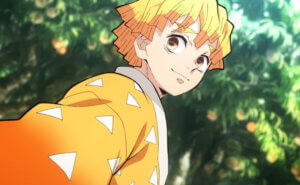
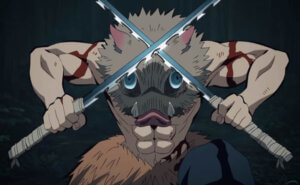
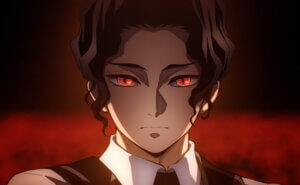
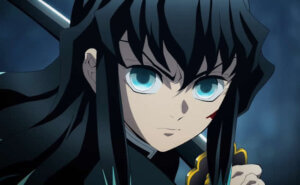
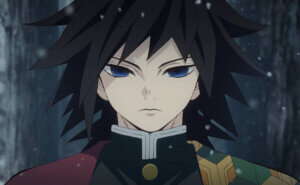
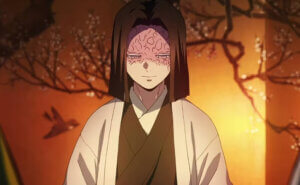
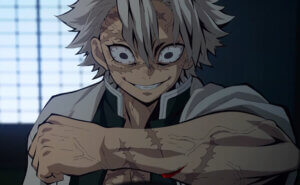
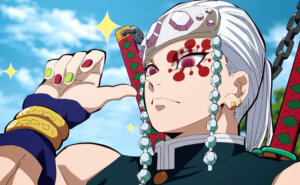
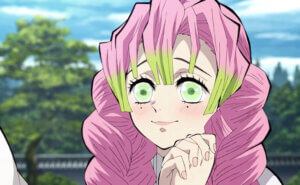
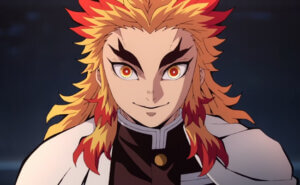

Interesting. 👀 Glad we agree on Inosuke, and interesting points on Muzan. (I typed him as ExTJ) 😂🥳
Questions
1. One of my reasons for typing Inosuke as ESFP > ESTP was he has this obsession with proving he’s the best, how strong he is, and iirc his catchphrase was “Anything you can do, I can do better!!!” And how he turned *everything* into a competition. Like… everything.
Vs I’d imagine an Estp either being less obsessed with competence, or less vocal about it.
Would you say my reason is fair?
Asking because I see you guys typed Bakugo as ESTP and he’s also obsessed with competence, so I feel like my reasoning for Te for Inosuke’s a bit weak. I leaned and still am considering ESFP for Bakugo for that reason.
2.So what do you define as controlling your environment? Is it basically bossing people around? Because I’d imagine controlling anything outside of yourself is a Je thing in general, not Te, no?
3. Would you say that the competence thing is a resule of Inosuke’s Fi or Te? Could it be an Fi value (ie his ideal self image being an unbeatable strong guy), or just a general Te need for it?
4. Also what do you think the butterfly hashira’s type is?
5. Is it possible that Muzan’s spell to shut the demons up could’ve been a Te power move and not out of caution? (I can kinda see that he’s hella patient for a Te dom though lol)
6. Any reason for INFP > ENFP for Zenitsu? I had him as ENFP for a while because he’s constantly running worst case scenarios and it’s like he freaks out at every little thing.
Is it because he’s awful at adapting and clings to Tanjiro and Zenitsu the entire show instead of moving and figuring it out on his own? (I considered ISFJ for him for a while because he didn’t strike me as a perceiver, but the Ne was wild lol).
Thanks!
1. Inosuke doesn’t really get developed much, so we were a bit hesitant on him, beyond the obvious Se dominance. An ESTP can definitely be concerned with competence, but I didn’t see any sign of him using Fe to promote it or boost himself. A good comparison would be Tengen.
I’ve been meaning to re-evaluate Bakugo, so he may not have any relevance to this conversation.
2. Je tends to be more concerned with external control, because it’s object-oriented (being extraverted) and a judgement function. So, rules + objects = external control. Te is focused more on the physical environments, whereas Fe is more concerned with people. So, Te is going to prefer physical rules, direct commands, and object restructuring/reordering. Fe, being focused on people first, is going to prioritize managing the emotional environment as it’s means to manage the people, which makes it often a bit less direct.
3. Competence can be a value anyone holds, but TJs tend to use competence as means to define their identity or personal value.
4. No clue. I don’t remember anything about her.
5. It was likely both.
6. Constantly running worst case scenarios and freaking out over every little thing doesn’t specifically support dominant Ne. I wish him and Inosuke got more character development, but all I can really say off the top of my head is that he didn’t strike me as a extraverted perceiving dominant. Seemed more focused on his emotions and ideals.
Makes sense. Thanks for clarifying!
I dropped the anime after the first series but ironically yesterday I saw a Muzan reel, the one about “what I say is law” and Te was clearly, so I saw it as a possible ExTJ.
Intrigued I read other quotes and the second one was precisely the one about “perfection” and it immediately strike me as Si.
As an Ni I can think about “perfection” but at the same time there is a mechanism of continuous improvement, which makes perfection itself ephemeral and impossible.
Only continuous improvement or decay. Stagnation is similar to a slow death.
PS
1. Always ready to help as a quiz tester
2. Todo retype as ESTP?
Merging two comments into one, are we? lol.
I actually really enjoyed Muzan, because he’s a rare example of a “mastermind” STJ, since most people like to lean into the NTJ stereotype.
Some of your comments about Ni might also be more Ni auxiliary, since a lot INTJ do relate to the desire for perfection. Te dominance would make you more grounded in the sense of seeing perfectionism as impossible.
I think something about getting to rapid-fire read a bunch of mini-character analyses like this appeals to my Ne lol. I think I like this article structure.
“There’s no reason to stop and fight it now. If the entire village is under attack, then the village chief comes first. Those with greater skills and talents are my top priority to protect. My objective is to annihilate that upper-ranked demon, and protect the village at all cost. Saving and inexperienced budding swordsmith won’t amount to anything.”
I think you mentioned in your Melinda May article when she had to “ice” someone (and the Frieren one? Regarding the demon child who killed those families.) that Ti is good at… I’m paraphrasing, but good at making (on the surface) cold hearted but ultimately necessary (to the Ti user, at least) decisions quickly. If you’re trying to type a character is the ability to do this a good indicator of high Ti? Or is it that Muichiro is in an unhealthy state here and this shouldn’t necessarily be applied universally? Since you said he started paying more attention to emotional data after getting his memories back.
Also, I looked into the series a little bit and found out Nezuko apparently lost the ability to speak after getting turned into a demon, so I can understand why she doesn’t have an entry here and how that would make her hard to type, haha.
Hi! What do you think would be Shinobu Kocho’s case? (Since she seems to be left out amongst this list)
I never really got a lock on her, which is why she was left out of the article.
I’ll be waiting for manga materials and the typings of top 6 to 7 demons